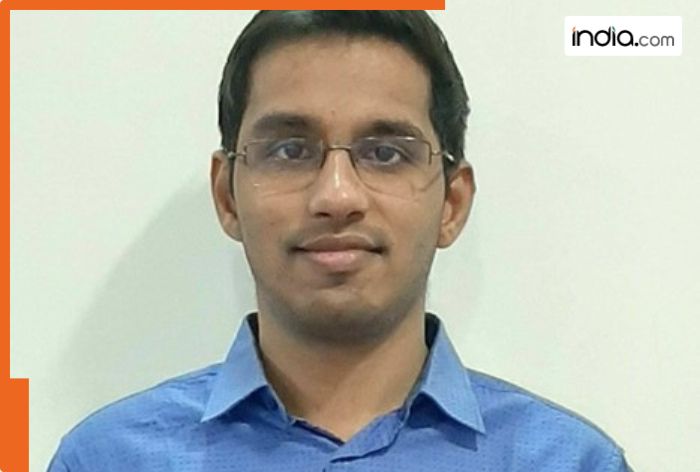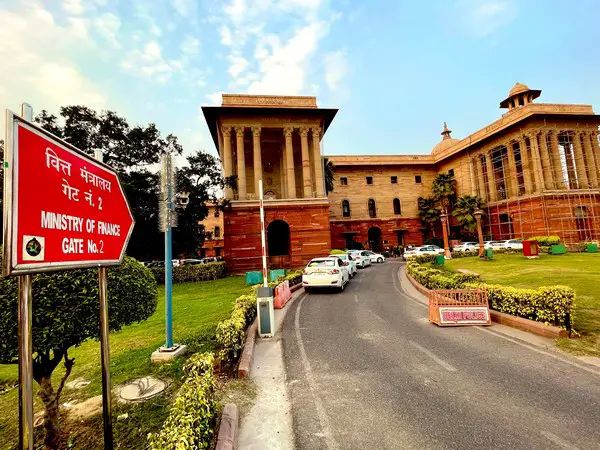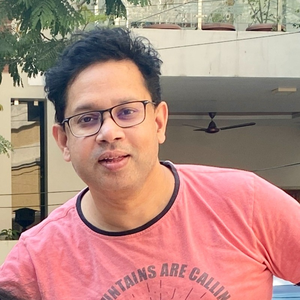Innovating the Digital Landscape with Softwares By Abhijeet Bajaj

Abhijeet Bajaj is a highly skilled Software Engineer with a robust academic background and diverse work experience in the tech industry. He holds a Master’s degree in Computer Science from Columbia University, where he achieved a CGPA of 3.83/4.0, and a Bachelor’s degree from the Birla Institute of Technology and Science, Pilani, with a CGPA of 8.43/10.0. His expertise lies in developing algorithms that enhance user experience in marketplace applications.
Q 1: Can you describe your experience with marketplace algorithms and their impact?
A: In my work with marketplace systems, I’ve focused on optimizing pricing algorithms and demand-supply matching. One significant project involved designing and implementing a novel surge pricing algorithm that was successfully launched in 10 cities across Latin America. This project optimized pricing strategy during peak demand and improved earnings for service providers while maintaining market efficiency. I also built a pipeline that emits metrics to track the health of pricing algorithms, allowing for real-time monitoring and adjustments. The impact of this work has been substantial, resulting in better service for all platform participants.
Q 2: What motivated you to pursue a Master’s degree in Computer Science at Columbia University?
A: My motivation to pursue a Master’s degree in Computer Science stemmed from my desire to deepen my knowledge and skills in technology and innovation. Columbia’s reputation for excellence in research and its focus on cutting-edge technologies attracted me. I wanted to engage with top-tier faculty and collaborate with like-minded peers who were equally passionate about pushing the boundaries of technology. My time at Columbia not only enriched my technical skills but also exposed me to a diverse range of perspectives that I carry with me in my professional journey.
Q 3: How did your internship experiences at Google and Goldman Sachs shape your career?
A: My internships at Google and Goldman Sachs were pivotal in shaping my career. At Google, I was involved in building a dashboard to monitor network health metrics, which significantly reduced on-call time for engineers. This experience taught me the importance of real-time data analysis and its impact on operational efficiency. At Goldman Sachs, as a Strategy Analyst, I gained insights into the finance sector, particularly in electronic trading. I was responsible for reviewing bonds and monitoring software-based controls to mitigate risks. This exposure to risk management and compliance in finance broadened my understanding of how technology can solve complex business challenges.
Q 4: Could you elaborate on the multi-threaded chatbot project you developed during your studies?
A: The multi-threaded chatbot project was a significant endeavor that combined artificial intelligence with user interaction. I designed the chatbot using AIML and incorporated text-to-speech and speech-to-text recognition to create a more interactive experience for users. Managing multi-threading was crucial, as it allowed the bot to accept concurrent voice and text inputs seamlessly. I utilized semaphores to prevent deadlocks, ensuring that the system was robust and responsive. This project not only honed my programming skills but also enhanced my understanding of user experience design and the challenges of implementing real-time systems.
Q 5: What technical skills do you believe are essential for a successful software engineer today?
A: A successful software engineer today needs a diverse set of technical skills. Proficiency in programming languages such as C/C++, Python, and Java is fundamental, as these languages are widely used across various domains. Additionally, familiarity with machine learning libraries like TensorFlow and PyTorch is increasingly important as the industry embraces AI and data-driven solutions. Understanding software engineering practices, such as version control with Git, and agile methodologies like JIRA, is also crucial. Furthermore, skills in databases and distributed systems are essential for building scalable applications. Continuous learning and adaptability to new technologies are vital in this rapidly evolving field.
Q 6: What challenges did you face while implementing complex pricing algorithms, and how did you overcome them?
A: Implementing sophisticated pricing algorithms presented several challenges. One major hurdle was ensuring that the algorithm was fair and transparent for service providers while maximizing user satisfaction. To address this, we conducted extensive testing and iterations, gathering feedback from stakeholders to understand their concerns and expectations. Additionally, integrating the algorithm into existing systems required close collaboration with cross-functional teams to ensure seamless deployment. We established a robust testing framework that allowed us to simulate various scenarios, helping us identify and resolve potential issues before launch.
Q 7: How do you stay updated with the latest trends and technologies in the software engineering field?
A: Staying updated with the latest trends and technologies is essential for any software engineer. I regularly follow industry blogs, podcasts, and online forums to keep abreast of emerging technologies and best practices. Participating in hackathons and coding challenges also allows me to apply new concepts and tools in a practical setting. Networking with peers and attending workshops or conferences further enhances my knowledge and provides insights into real-world applications of technology. I believe in continuous learning, so I often enroll in online courses to deepen my expertise in specific areas.
Q 8: What inspired you to create a depth-based annotation technique for RGB-depth images during your internship at Samsung?
A: My inspiration to create a depth-based annotation technique for RGB-depth images during my internship at Samsung came from the growing importance of computer vision in various applications, including robotics and autonomous vehicles. I was fascinated by how depth information could enhance the understanding of visual data. By re-engineering a method proposed by Jonathan Tompson, I aimed to develop a more effective solution for continuous pose recovery of human hands. This project allowed me to combine my interest in machine learning with practical applications, contributing to advancements in the field of computer vision.
Q 9: Can you share your experience of working on the A* search project for Google Maps?
A: Leading the A* search project for Google Maps was an enriching experience. I spearheaded a small team to implement the algorithm on New Delhi’s map, covering an area of 40 square kilometers. We proposed a new methodology that utilized the haversine distance as a heuristic value, which significantly improved the efficiency of the search process. The project involved optimizing the construction and traversal of a graph with over 200,000 nodes. This experience taught me valuable lessons in teamwork, problem-solving, and the importance of efficient algorithm design in real-world applications.
Q 10: What are your future career aspirations as a software engineer?
A: My future career aspirations as a software engineer include taking on leadership roles where I can drive innovation and mentor emerging talent in the field. I am particularly interested in exploring areas like machine learning and artificial intelligence further, as I believe these technologies hold immense potential for transforming industries. Additionally, I aim to contribute to projects that have a positive social impact, utilizing my skills to address pressing global challenges. Ultimately, I aspire to be at the forefront of technological advancements, influencing the next generation of software solutions.
About Abhijeet Bajaj
Abhijeet Bajaj is a highly skilled software engineer with a robust educational foundation, holding a Master’s in Computer Science from Columbia University and a Bachelor’s degree from BITS Pilani. His experience includes working with top-tier tech companies such as Google, Goldman Sachs, and Samsung, where his contributions in software development and risk management have been impactful. With expertise across various programming languages and machine learning frameworks, Abhijeet focuses on using technology to develop innovative solutions that improve user experiences. His passion for problem-solving and continuous learning motivates him to take on new challenges in the fast-paced tech industry.
First Published: 08 August, 2022





